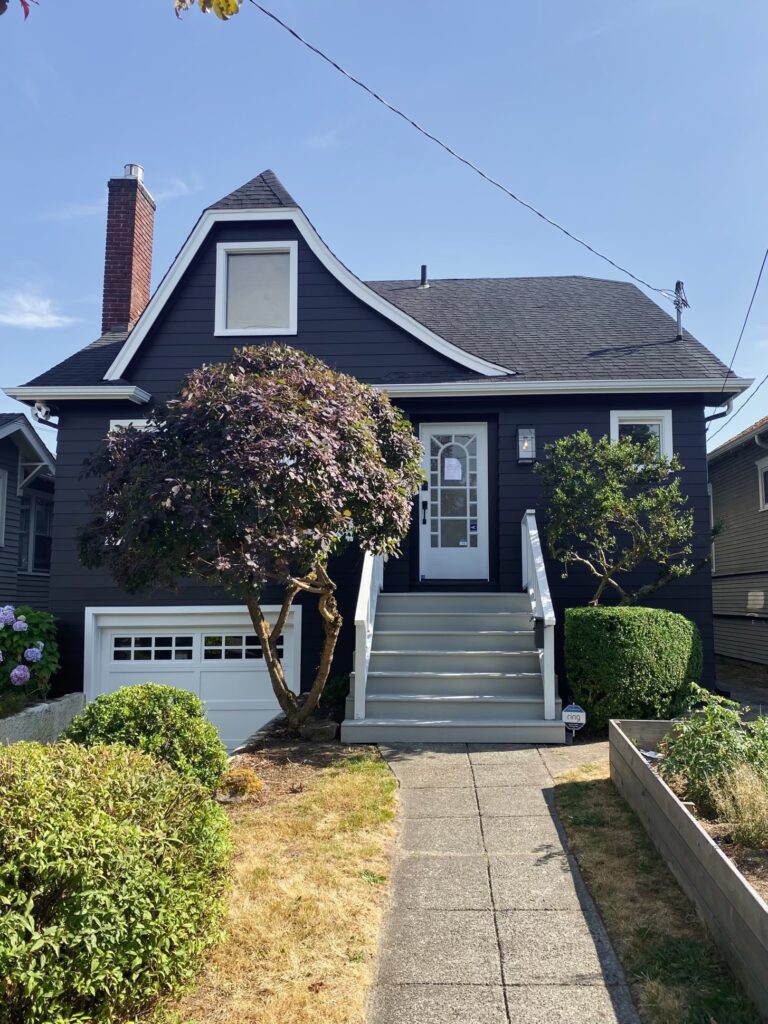Real Estate Commission: How Much Does a Realtor Make on a Sale?
Understanding real estate commission is essential for both buyers and sellers in the property market. At VIV Capital, based in Columbus, Ohio, we aim to clarify how much a realtor makes and the factors that influence these earnings. This comprehensive guide explores the average realtor commission, typical real estate commission rates, and how these fees are calculated.
By the end, you’ll have a clear understanding of what percentage realtors get and how much money realtors make per sale.
Section 1: What is a Realtor’s Commission?
A realtor’s commission is the fee paid to real estate agents for their services in buying or selling a property. This fee is usually a percentage of the home’s sale price, making it a significant part of the real estate transaction.
- Commission Breakdown:
- Typically split between the buyer’s agent and the seller’s agent.
- Each agent may receive around 2.5% to 3% of the sale price.
- Total commission can vary based on regional norms and individual negotiations.
- Purpose of Commission:
- Compensates agents for their time, expertise, and resources.
- Covers marketing expenses, including professional photography, online listings, and open houses.
- Includes administrative tasks like preparing contracts, negotiating terms, and managing the transaction process.
- Commission Agreement:
- Established through a listing agreement between the seller and their agent.
- Buyers may also have an agreement with their agent regarding the commission split.
- The total commission rate is often disclosed in the Multiple Listing Service (MLS) listing for the property.
Understanding how much commission does a realtor make per sale helps both buyers and sellers appreciate the value provided by real estate professionals.
Section 2: Average Realtor Commission Rates
The average real estate commission rate varies depending on the market and region. For instance, in Columbus, Ohio, the average commission might differ from national averages.
- National Averages:
- Typically, the average realtor commission is about 5% to 6% of the sale price.
- This percentage is split between the buyer’s and seller’s agents.
- Higher or lower rates can be negotiated based on the specific circumstances of the sale.
- Regional Variations:
- Commission rates can be higher in markets with high property values.
- In competitive markets, agents might lower their rates to attract more clients.
- Rural areas may have different commission structures compared to urban areas.
- Influencing Factors:
- Market Conditions: In a seller’s market, commissions might be lower due to high demand for properties.
- Property Type: Luxury homes or commercial properties may have different commission structures.
- Agent Experience: Experienced agents with a strong track record may command higher commissions.
- Brokerage Policies: Some brokerages have set commission rates, while others allow more flexibility.
Understanding the average commission for realtors helps in setting realistic expectations for both parties involved in a transaction.
Section 3: How Realtor Commissions Are Calculated
Calculating realtor commissions involves understanding the sale price and the agreed-upon commission rate.
- Calculation Basics:
- Multiply the sale price of the home by the commission rate.
- Example: For a $300,000 home with a 6% commission, the total commission is $18,000.
- This total is then split between the buyer’s and seller’s agents.
- Real Estate Commission Calculator:
- Many online tools are available to help estimate commission fees.
- Input the sale price and commission rate to get an instant calculation.
- Helps in financial planning for sellers and understanding costs for buyers.
- Commission Distribution:
- The commission is typically paid at the closing of the sale.
- The seller pays the full commission, which is deducted from the sale proceeds.
- Each agent receives their share after brokerage fees and other expenses are deducted.
- Brokerage Fees and Splits:
- Agents often work under a brokerage, which takes a portion of the commission.
- The split between agent and brokerage can vary, often around 60/40 or 70/30 in favor of the agent.
- Top-performing agents might negotiate better splits with their brokerages.
Understanding how much commission realtors make helps sellers budget for their transaction and buyers understand the cost structure of their purchase.
Section 4: Factors Influencing Realtor Commission Rates
Several factors influence how much commission a realtor makes. These include the property’s location, market conditions, and the level of service provided by the agent.
- Property Location:
- Properties in high-demand urban areas might attract lower commission rates due to quicker sales.
- Rural or less popular areas might require higher commissions to compensate for longer sales times and higher marketing costs.
- Market Conditions:
- In a hot market, homes sell quickly, potentially leading to lower commission rates as agents compete for listings.
- In a slow market, higher commissions might be needed to attract experienced agents willing to invest in extensive marketing efforts.
- Agent Experience and Reputation:
- Experienced agents with a successful sales history might charge higher commissions for their expertise.
- Newer agents might offer lower rates to build their client base and gain experience.
- Level of Service:
- Full-service agents who handle every aspect of the sale, from marketing to closing, typically charge higher commissions.
- Discount brokers or limited-service agents might offer lower rates but provide fewer services.
- Negotiation:
- Commission rates are not fixed and can be negotiated.
- Sellers can negotiate rates based on the property’s value, the agent’s experience, and the expected time to sell.
- Understanding how much commission does a realtor make per sale can provide leverage during negotiations.
By considering these factors, both buyers and sellers can make informed decisions and negotiate commission rates that reflect the value and effort of the services provided.
Section 5: Who Pays the Realtor Commission?
In most real estate transactions, the seller pays the realtor commission. This fee is typically deducted from the sale proceeds at closing.
- Seller’s Responsibility:
- The seller agrees to the commission rate when signing the listing agreement with their agent.
- The commission is then split between the seller’s agent and the buyer’s agent.
- This arrangement is standard to incentivize cooperation between agents to close the sale.
- Buyer’s Perspective:
- Although the buyer does not directly pay the commission, the cost is often factored into the home’s sale price.
- Buyers should understand this aspect when negotiating the final purchase price.
- Commission Payment Process:
- At closing, the commission is deducted from the sale proceeds.
- The closing agent or attorney disburses the funds to the respective agents and their brokerages.
- Transparency in this process ensures that both parties understand the distribution of funds.
- Alternative Arrangements:
- In some cases, buyers might negotiate to pay part of the commission if it benefits the overall transaction.
- For instance, in highly competitive markets, a buyer might offer to cover some commission to make their offer more attractive.
Understanding who pays realtor commission helps clarify the financial responsibilities in a real estate transaction and can influence negotiation strategies.
Section 6: How Much Do Realtors Make Per Sale?
The amount a realtor makes per sale depends on the commission rate and the sale price of the property.
- Typical Earnings:
- Using a 6% commission on a $300,000 home, the total commission would be $18,000.
- This is split between the buyer’s agent and the seller’s agent, with each receiving $9,000.
- Brokerage Splits:
- Agents must share their commission with their brokerage.
- Common splits include 60/40 or 70/30, with the agent keeping the larger percentage.
- After brokerage fees, an agent might keep around $5,400 from a $9,000 share.
- Expenses:
- Agents incur various expenses, including marketing costs, professional dues, and continuing education.
- These costs can significantly reduce net earnings.
- On average, agents might take home about 1.5% to 2% of the sale price after expenses.
- Income Variation:
- Earnings can vary widely based on the number of transactions and property values.
- Top agents in high-value markets might earn significantly more than those in lower-value areas.
- Understanding how much commission do realtors make provides insight into their income potential and business model.
By breaking down the commission structure and expenses, clients can better understand the financial aspects of hiring a realtor and the value of their services.
Section 7: Negotiating Realtor Commission Rates
Negotiating realtor commission rates can be beneficial for both buyers and sellers.
- Understanding Flexibility:
- Commission rates are not fixed and can be negotiated based on the specifics of the transaction.
- Factors such as property value, market conditions, and the level of service required can influence the final rate.
- Strategies for Sellers:
- Sellers can negotiate lower rates if they are confident their property will sell quickly or if the agent will have minimal marketing expenses.
- Offering a higher commission might attract more experienced agents and ensure better service and quicker sale.
- Buyer’s Perspective:
- Buyers can discuss commission rebates with their agents.
- Some agents offer to rebate a portion of their commission to the buyer, which can help cover closing costs or other expenses.
- Dual Agency:
- In cases where one agent represents both the buyer and the seller, the agent might reduce the total commission rate.
- This can benefit both parties but requires transparency and disclosure to avoid conflicts of interest.
- Effective Negotiation:
- Researching average commission rates in the area can provide a benchmark for negotiations.
- Clear communication about expectations and services can lead to mutually beneficial agreements.
- Understanding how much is realtor commission helps set realistic negotiation goals.
Negotiating commission rates effectively can lead to cost savings and ensure that clients receive the best possible service from their real estate agents.
Section 8: The Role of a Real Estate Agent in Earning Their Commission
Real estate agents earn their commission by providing a range of services that facilitate the buying or selling process.
- Marketing the Property:
- Listing the property on MLS and other platforms.
- Professional photography, virtual tours, and open houses.
- Targeted advertising and outreach to potential buyers.
- Negotiation and Offers:
- Advising clients on pricing and market conditions.
- Presenting and negotiating offers to achieve the best terms.
- Handling counteroffers and ensuring a fair deal.
- Transaction Management:
- Coordinating inspections, appraisals, and closing procedures.
- Ensuring all paperwork is completed accurately and on time.
- Managing communications between all parties involved.
- Expertise and Advice:
- Providing insights into market trends and property values.
- Advising on home staging and improvements to enhance sale potential.
- Offering support and guidance throughout the buying or selling process.
- Value Justification:
- The commission compensates for the agent’s time, expertise, and resources.
- Agents often invest significant personal funds into marketing and other expenses upfront.
- Their experience and knowledge can lead to higher sale prices and quicker transactions.
By understanding the comprehensive role of a real estate agent, clients can appreciate the value of the commission and the services provided.
Section 9: Understanding Realtor Fees and Expenses
Realtor fees and expenses can vary widely, impacting how much a realtor makes per sale.
- Brokerage Fees:
- Agents typically pay a percentage of their commission to their brokerage.
- This fee covers office space, administrative support, and other resources provided by the brokerage.
- Splits can vary, but common arrangements include 60/40 or 70/30 in favor of the agent.
- Marketing Costs:
- Expenses for listing photos, virtual tours, and advertisements.
- Costs for staging homes, printing materials, and hosting open houses.
- Online advertising and social media marketing to reach a broader audience.
- Professional Memberships and Education:
- Fees for memberships in professional organizations like the National Association of Realtors (NAR).
- Continuing education courses to maintain licenses and stay updated on industry trends.
- Conferences and seminars to network and learn from other industry professionals.
- Operational Costs:
- Office supplies, technology tools, and transportation expenses.
- Insurance and licensing fees.
- Personal marketing, such as business cards, websites, and promotional materials.
- Net Earnings:
- After all expenses, agents’ net earnings can be significantly lower than the gross commission.
- On average, agents might take home 1.5% to 2% of the sale price after all deductions.
- Understanding how much commission realtors make per sale provides insight into their true earnings.
By recognizing the various fees and expenses that real estate agents incur, clients can better appreciate the value of the commission and the effort invested in each transaction.
Section 10: Using a Real Estate Commission Calculator
A real estate commission calculator is a useful tool for estimating the commission fees in a transaction.
- How to Use:
- Input the home’s sale price and the agreed-upon commission rate.
- The calculator will provide an instant estimate of the total commission amount.
- Split the total commission between the buyer’s and seller’s agents to understand individual earnings.
- Benefits:
- Helps sellers budget for their transaction by understanding the commission costs upfront.
- Assists buyers in comprehending the financial structure of their purchase.
- Provides a clear picture of how commission rates impact overall transaction costs.
- Examples:
- For a $300,000 home with a 6% commission, the total commission is $18,000.
- Splitting this equally, each agent receives $9,000 before expenses.
- Using different rates, such as 5%, would reduce the total commission to $15,000.
- Comparison Tool:
- Compare different commission rates and their impact on net proceeds.
- For instance, reducing the commission from 6% to 5% on a $300,000 home saves the seller $3,000.
- This tool aids in negotiation and financial planning.
- Online Resources:
- Many real estate websites offer free commission calculators.
- These tools are easy to use and provide instant results.
- Understanding how much commission do realtors make can help clients make informed decisions.
Using a real estate commission calculator helps demystify the commission process and provides valuable insights for both buyers and sellers.
Frequently Asked Questions
Real estate commission can be calculated using common methods such as percentage-based and flat fee structures. The commission split between the listing agent and the buyer’s agent also plays a role in the calculation. For example, if the total commission is 6%, it may be split as 3% for the listing agent and 3% for the buyer’s agent. While commissions are typically expressed as a percentage, they can also be negotiated as a fixed amount or a combination of both.
The average real estate commission rates can vary geographically and may be influenced by market conditions. Higher-priced homes may have lower or higher commission rates, depending on the specific property value. It’s important to consider any legal or ethical considerations related to price-fixing or collusion among real estate professionals when it comes to setting commission rates.
Realtors can effectively negotiate their commission rates with clients by demonstrating value and market expertise. Offering tiered commission structures or bundled services as alternative options for clients who are resistant to paying the standard rate can also be beneficial. Additionally, including a clause in the listing agreement that allows for a potential reduction in the commission percentage if the realtor brings in their own buyer for the property is a recommended strategy.
Technological advancements, such as online real estate platforms and automation tools, have affected traditional commission models. VIV Capital is at the forefront of this tech-driven evolution with innovative solutions for streamlining transactions and reducing costs. In an increasingly digitized marketplace, where transparency around commission data is more accessible to consumers, there are potential benefits and drawbacks for realtors.
Discount brokerages that offer fixed-fee or reduced-commission services to sellers have emerged as potential alternatives to traditional full-service realtors like VIV Capital. It’s important to consider the value proposition of these models and whether they pose a threat or an opportunity for traditional realtors. Insights from industry experts or agents who have experience working with discount brokerages can provide valuable perspectives on this topic.
Real estate commissions may evolve in the future, taking into account ongoing market trends and regulatory developments. It’s crucial for realtors to stay adaptable and continue providing exceptional service to justify their commissions in any market conditions.















